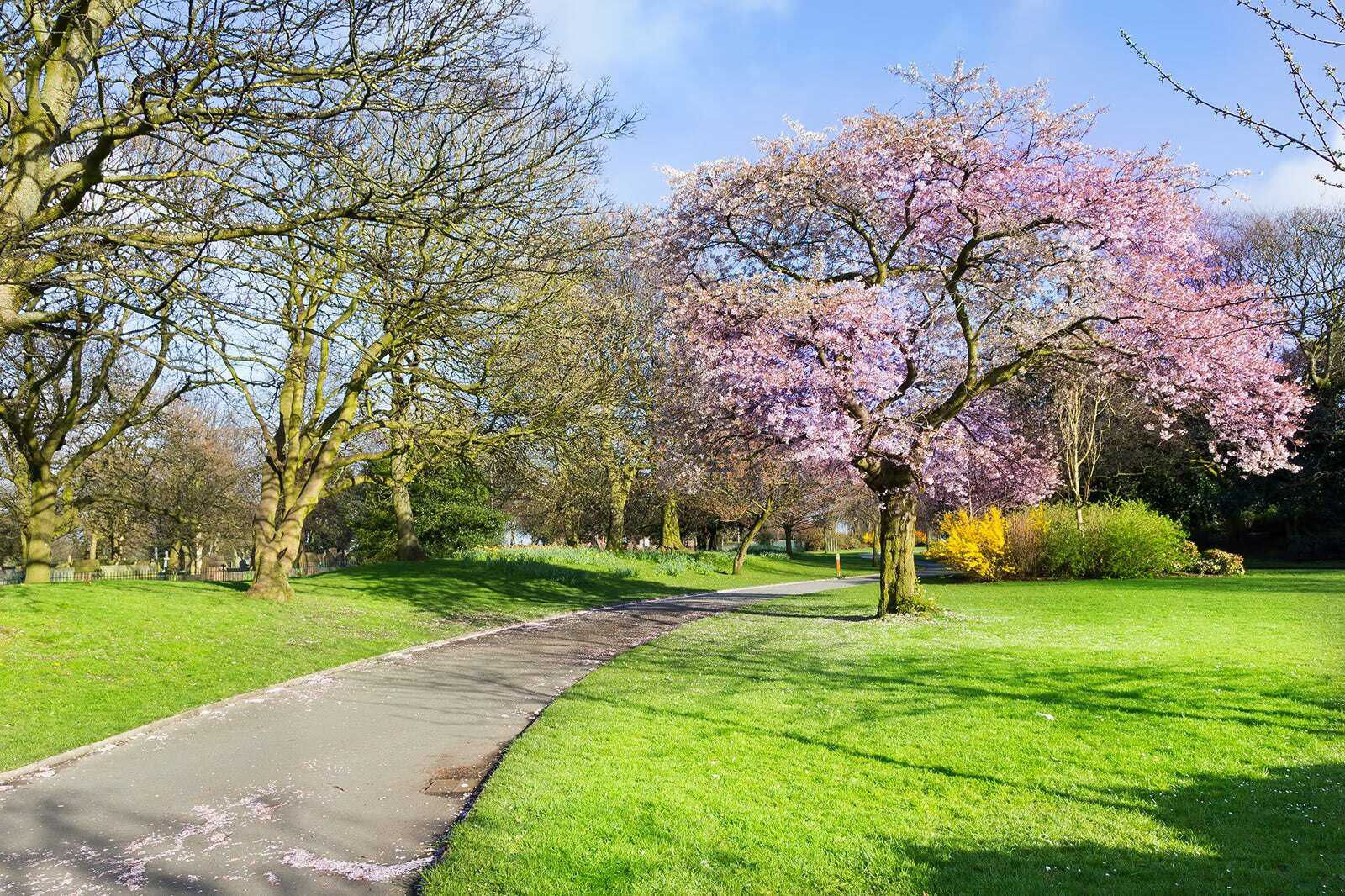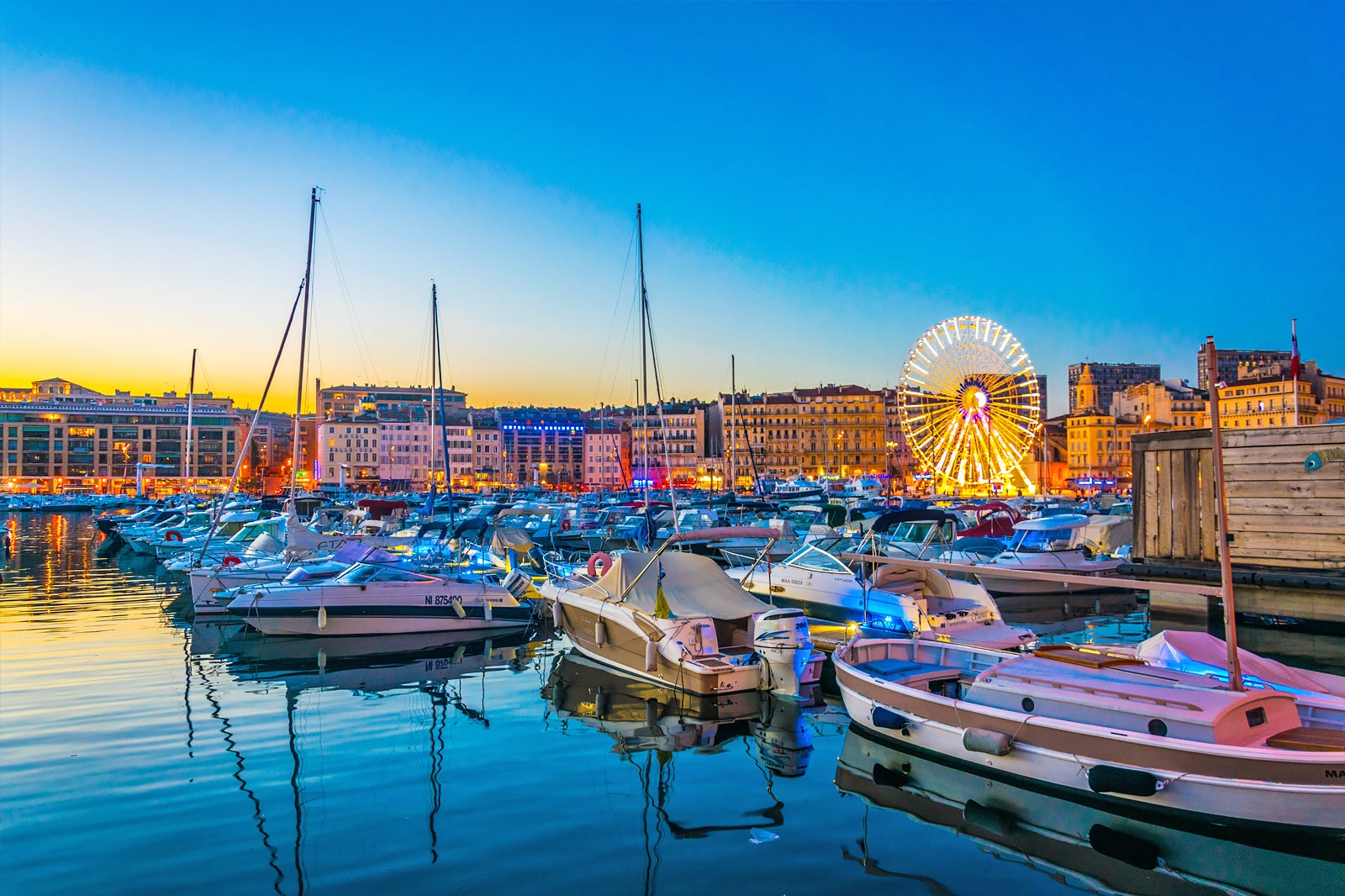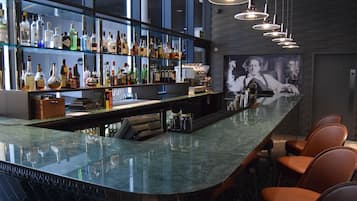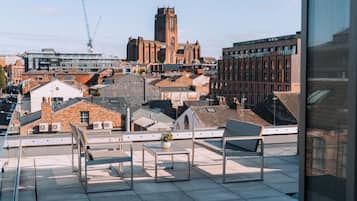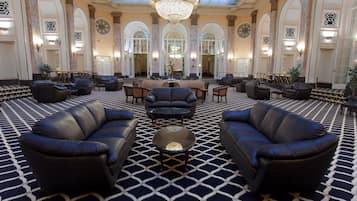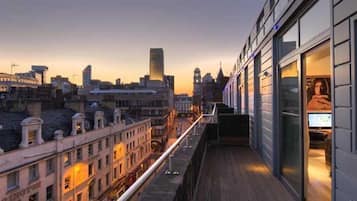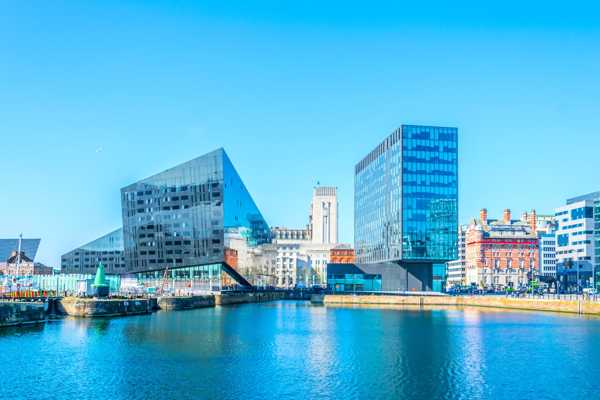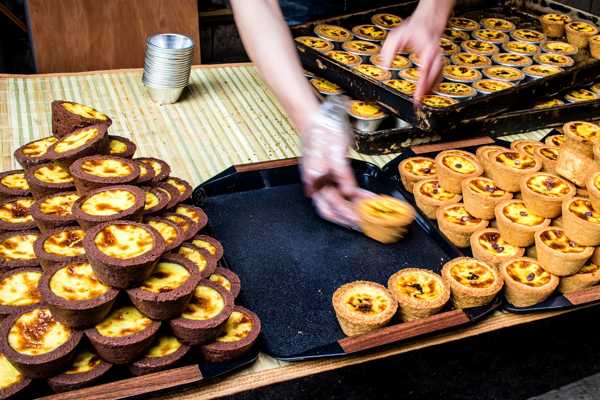Anfield is one of Liverpool's most iconic and well-known neighbourhoods, thanks largely to the presence of the cathedral-like football ground with which the area shares its name. Home to Liverpool FC since their founding in 1892, Anfield Stadium towers over the neat rows of red brick terrace houses that make up the local skyline, and the area has undoubtedly benefited hugely from the arena's imposing presence.
On match days, Liverpool FC routinely welcomes a packed house full of some of the sporting world's most loyal and colourful fans, singing their hearts out to the club's rousing You'll Never Walk Alone anthem. Perhaps unsurprisingly, the beautiful game dominates the neighbourhood.
Anfield in Liverpool - one of the highlights of 10 Most Popular Neighbourhoods in Liverpool (Read all about Liverpool here)
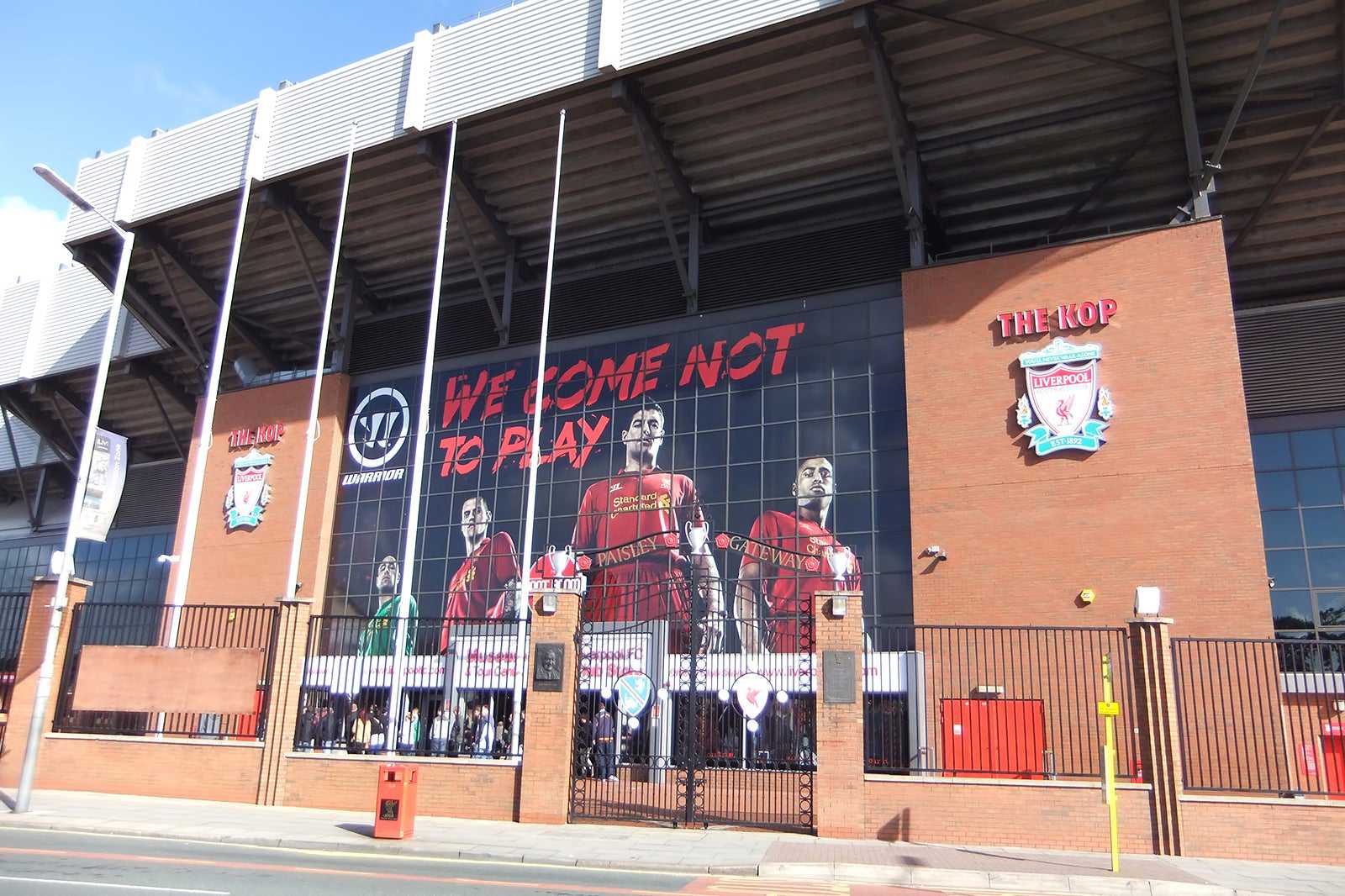
foto oleh Rept0n1x (CC BY-SA 3.0) diubah suai
What are the highlights of Anfield?
Even when no footballs are being kicked, the stadium opens its doors to those wishing to take a closer look at the behind-the-scenes workings of the world-famous club. Tours allow supporters the opportunity to walk in the shoes of Liverpool's illustrious players past and present. It includes a visit to the home and away dressing rooms, as well as the chance to step through the legendary players' tunnel onto the hallowed Anfield turf.
Passionate and knowledgeable guides enthusiastically purr about the history of their beloved club, while shining a fascinating light on the day-to-day running of the Premier League team.
The tourism and international interest that The Reds generate has also helped breathe new life into the local vicinity, which has undergone a huge amount of regeneration in recent years with the opening of new retail spaces, bars, restaurants and street food stalls.
The Anfield Regeneration Project was set up in 2013 by a consortium – including Liverpool FC and the local council – to revitalise previously neglected parts of the residential neighbourhood. The £260m project included improvements to the stadium and is on course to build over 1,000 new homes in the area – including a new high street and public square close to the football ground.
Such is the gravitational pull of football in these parts, it can be difficult to escape the sport entirely – but it’s just about possible with a little imagination.
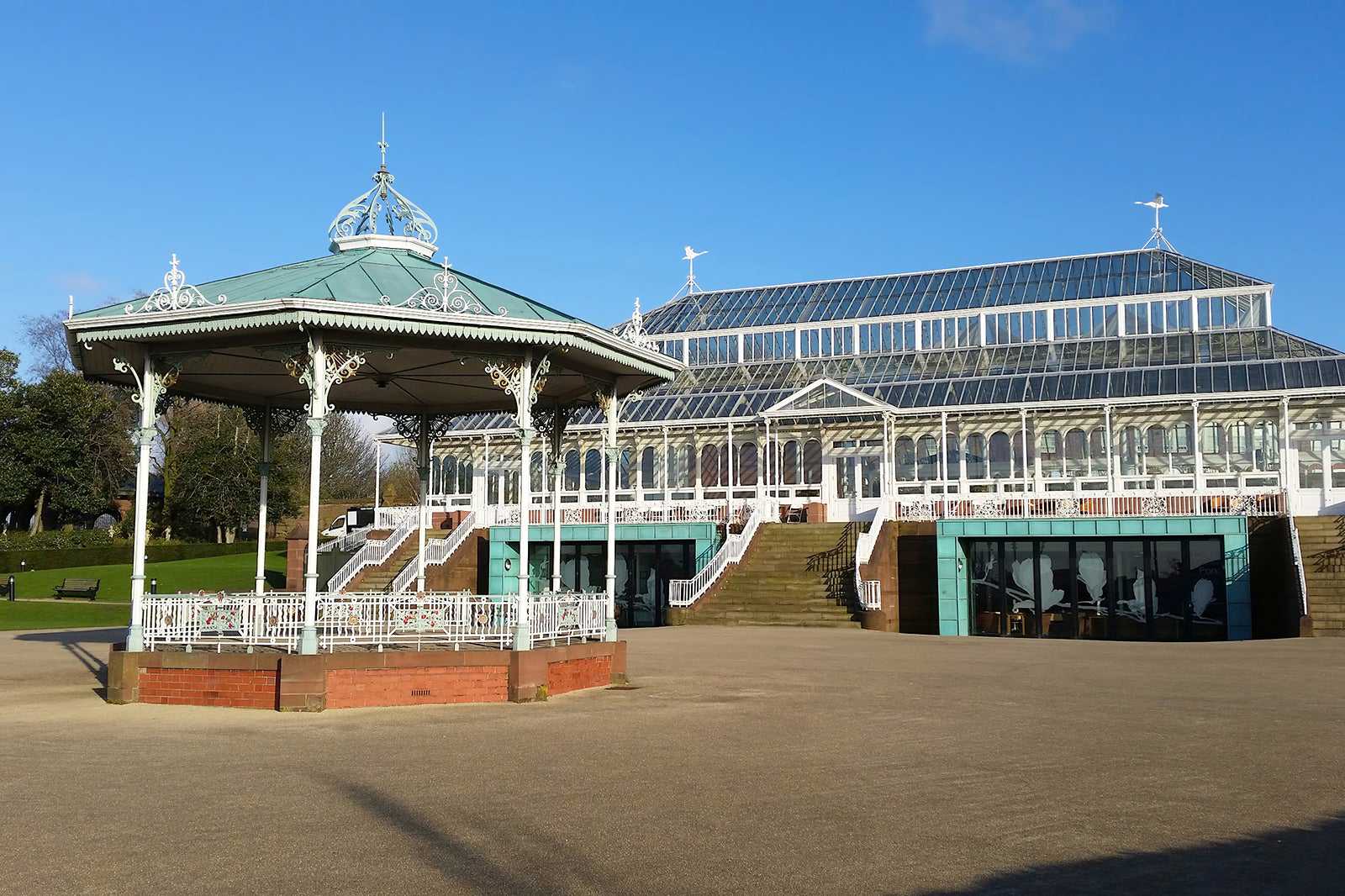
What else can you do in Anfield?
The peaceful atmosphere of nearby Stanley Park provides some all-important sanctuary, and the historic green space is a wonderful setting for a relaxing summer picnic or a gentle stroll. Opened in 1870, the landmark park is home to the Isla Gladstone Conservatory – a stunningly restored Grade II-listed Victorian building that now operates as an events space – as well as a delightfully picturesque lake, grass verges, and carefully arranged flowerbeds.
Although Stanley Park can indeed provide a little respite from footy, the green space is also famous for serving as a dividing line between the city's main sets of rival fans – The Reds of Liverpool and The Blues of Everton. Indeed, Everton's Goodison Park is an approximately 10-minute walk from the centre of the Anfield neighbourhood, so it's easy to understand why the area is so soccer-obsessed.

foto oleh Rept0n1x (CC BY-SA 3.0) diubah suai
Where to eat and drink in Anfield?
The neighbourhood of Anfield boasts some notable pubs and bars, and one of the most characterful is the distinctive corner building of The Flat Iron on Walton Breck, which offers good quality pub grub and beverages, as well as comfortable overnight accommodation for visitors. Again, though, be prepared for football to dominate the ambience – especially on match days – when the venue is generally full to the brim with supporters. When searching for sustenance, classic British fare is the easiest to find in the locality.
Becky's Kitchen on Breckfield Road scores highly when it comes to traditional cooked breakfasts, while Sing Song on Walton Breck Road is well-loved for its quintessential fish and chips.
